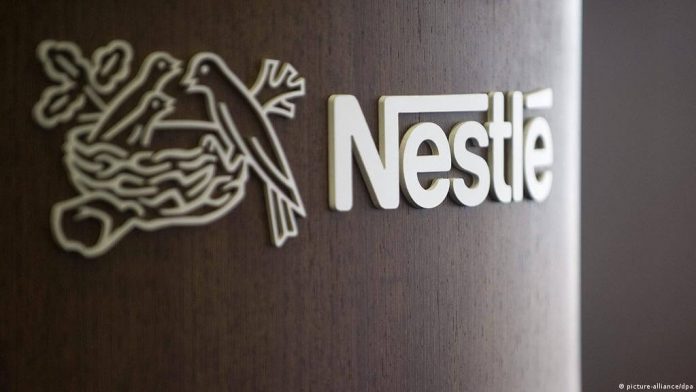This article is written by Devika Raj, pursuing Diploma in Business Laws for In-House Counsels from LawSikho.
Table of Contents
Introduction
When you hear the word ‘Nestle’, you immediately tend to murmur this jingle, ‘Good Food, Good Life’. That is exactly what Nestle is, a renowned Swiss Company providing food products high in nutrition value not only in India but across the globe.
Nestle’s journey in India started way back in 1912 when it began trading with British India as The NESTLÉ Anglo-Swiss Condensed Milk Company (Export) Limited. Post India’s independence and partition in 1947, the country was in dire need of funds, investment and adequate resources to cater to a huge population that was left homeless and penniless.
Nestle then formed a company in India, thus becoming Nestle India in 1961 by setting up a milk factory in Moga, Punjab catering to the government’s demand of establishing a milk economy in the state. From then to now, Nestle India has diversified its products from milk to chocolates to baby foods to our lip-smacking Maggi! It has employed over lakhs of Indians and catered to the health, taste and nutrition of the Indian consumers.
The CSR initiatives taken by Nestle are true to their brand reputation; innovative, well-conceived and unmatchable. This article reflects on how they are in line with the CSR laws of India, principles of sustainability and sustainable development goals.
Origin and genesis of CSR
Corporate citizenship or corporate responsibility are other names for CSR. In simplest terms, it can be defined as, ‘A bunch of charitable or philanthropic activities undertaken by profit-making business houses/companies as a gesture of gratitude to the origin of their success i.e., the environment and people in the form of customers, employees, investors etc.’
Corporate social responsibility or CSR is a philanthropic exercise of the profit-making corporate houses of giving back to the community and the environment. These companies can use a part of their profit and engage in activities related to building parks, hospitals, community houses, orphanages, install dustbins and initiate cleanliness drives, plant trees, launch a free legal aid initiative, and much more!
Business houses in India have been taking CSR activities since time immemorial, for we have it in our traditions and culture to believe that ‘if one has ample food, he must build a longer table and not higher walls’. CSR owes its genesis to this very school of thought and the earliest examples of CSR activities were seen as building creches in and around the factory, providing clean and liveable living quarters for the labourers, setting up memorial hospitals and trusts etc.
Undertaking CSR activities used to be just a moral obligation and left to the companies to decide for themselves. However, now with the implementation of the Companies Act, 2013; it is no longer just a moral obligation but a legal mandate under Section 135 of the 2013 Act and Companies (Corporate Social Responsibility) Rules, 2014.
(A complete guide regarding applicability and non-applicability of relevant provisions, kind of activities that constitute CSR, formation of CSR board, CSR policies and other processes and procedures can be found here.)
CSR initiatives by Nestle in India
Nestle since its very inception has been taking CSR initiatives that help in adding value to the lives of the people where they operate. As a form of expressing gratitude for the trust and love that they have received from the people of India, they have undertaken initiatives that would benefit different sections of our society in several ways. Nestle has funded many projects in India to improve access to water, taken sustainability measures, steps to enhance the livelihood of street food vendors, fitness programmes amongst others. These activities have been chosen from the list of recognised CSR work enumerated in Schedule VII of the Companies Act, 2013.
Nestle India’s CSR policy
Nestle India has to focus its CSR activities majorly on nutrition, water and sanitation, and rural development. This, however, is not an exhaustive list and the Company keeps coming up with innovative and situation-specific ideas, examples of which have been elaborately mentioned below. All CSR Activities are chosen after carefully analysing Schedule VII of the Companies Act, 2013, which has an exhaustive and suggestive list and procedure for a Company’s reference while laying out the CSR Policy.
As per Rule 5 of the CSR Rules under the 2013 Act, the companies are required to form CSR committees to formulate an annual action plan and get it approved by the Board of Directors. In pursuant of the same, Nestle’s CSR Policy is governed by the Board of Directors who as per the mandate of the 2013 Act have formed a CSR (Corporate Governance and Social Responsibility) Committee. This committee structures all activities monitor the status of every CSR project, manages the finances for CSR and regulates the policy from time to time.
(You can find the complete CSR Policy of Nestle India here.)
Here’s a list of CSR Initiatives taken by Nestle in India
-
Nestle healthy kids programme: Project Jagriti
This programme aimed at hitting the root cause of stunting in children, i.e., Malnutrition. According to the Global Nutrition Report, 2020, India is among 88 countries likely to miss Global Nutrition Targets set to be achieved by 2025. It is reported that 37.9% of children under 5 years are stunted and 20.8% are wasted, compared to the Asia average of 22.7% and 9.4% respectively. One in two women of reproductive age is anaemic.
These are the reported figures even when the government is running parallel schemes along with many CSR initiatives like these by the corporate houses. Therefore, schemes like these become extremely important especially when our economy has come to standstill and inequality levels are rising by the minute.
Details about the project
As mentioned above, it targets malnutrition amongst children, adolescents, pregnant women and lactating mothers. For this, it has partnered with MAMTA Health Institute for Mother and Child.
It focuses on creating awareness through peer-to-peer support and with the help of ASHA workers:
- About early initiation of breastfeeding, exclusive breastfeeding, and about improving the quality of breastfeeding practices;
- Menstrual and General Hygiene, improving mental and physical health;
- Gender equity norms, the importance of family planning, sexual and reproductive health etc.
A subset of this project was launched in 2009. The ‘Nestle Healthy Kids Programme’ promotes adolescents’ nutrition, health and well-being. It promotes understanding the value of sports and exercise, balanced diet, general hygiene etc via two modes-
- Classroom sessions in partnership with six regional universities; and
- Partnering with Magic Bus Foundation; pioneer of ‘Sports for Development’ model.
-
Project Serve Safe Food
Nestle has partnered with the National Association of Street Vendors of India (NASVI) and national and local food authorities to launch Project ‘Serve Safe Food’. The project has been launched to train street food vendors on maintaining general and food hygiene, clean and sustainable food storing techniques, food handling tips, waste disposal management and entrepreneurial skills.
They are taught to inculcate the habit of regular washing of hands, usage of gloves and kitchen caps, techniques of disinfecting utensils and storage boxes, proper washing of fruits and vegetables etc. After the training is complete, they are given a hygiene kit and a certificate stamped by Nestle. These vendors are also encouraged to propagate what they’ve learnt with fellow vendors and visiting customers. Till now, over 20,000 vendors across 17 States/UTs have been benefited from this programme.
-
Project Vriddhi (Rural Development)
This project was launched as a collaboration with SM Sehgal Foundation in a village called Rohira in District Nuh, Haryana. The three-year pilot project aims at improving the quality of drinking water, promoting sustainable agricultural and irrigation methods, teaching tricks and techniques to maximise production, combating gender inequality by promoting a healthy learning environment in village schools, teaching the importance of good sanitation practices like using toilets, menstrual hygiene etc.
-
Project HILLDAARI (Plastic Waste Management Awareness Campaign)
The HILLDAARI movement is an initiative of Nestle India to promote cleaner and sustainable hill towns especially the ones which receive high tourist footfall like Mussoorie, Nainital etc. Nestle realised that one of its bestsellers is also a major pollutant in the hill stations i.e., empty Maggi packets and took it upon themselves to clean it up. So, it motivated the citizens of the town to collect waste and inhabit a culture of waste segregation, so that it can be recycled and reused. As per this initiative, the tourists are encouraged to adopt responsible tourism and not litter around the place and if possible, carry their waste back home.
It is one of the flagship initiatives by Nestle where it promotes a collective sense of responsibility and ownership. HILLDAARI as a form of ‘Zimmedaari’ towards our mother nature is what the company stands for. Apart from creating awareness about scientific methods of waste disposal, local artisans are not only taught to craft something out of the left-over waste like Maggi Packets and Water Bottles but also sell it for monetary gain.
This CSR project continued to function during the pandemic whereby people were trained in techniques for safely disposing medical waste along with teaching them and encourage them to propagate following of COVID-19 appropriate behaviour, like regular washing of hands, social distancing, usage of masks, gloves and PPE kits, and methods of sanitization.
(You can read all about the project along with the success stories here.)
-
Water Conservation Programmes
Nestle India is committed to saving water by making the best possible use and they believe that charity begins at home. As a matter of fact, they’ve altered their production methods and reduced the generation of waste water by 49% and water usage by about 53% per tonne of production. This is completely in line with Nestle’s global guidelines on providing clean water to people across the world.
You can read Nestle Guidelines on Respecting the Human Rights to Water and Sanitation here.
Other than altering its production methods, Nestle has taken up the following initiatives to conserve water:
-
WASH pledge
The ‘WASH at the Workplace Pledge’ was launched by WBCSD in 2013 to implement its Action 2020 Water strategy. Nestlé is a founding member and was among the first signatories to the WASH Pledge. As a co-chair of the Pledge, the company provides strategic input and support to the WBCSD’s work programme on access to water, sanitation and basic hygiene.
-
Water productivity mapping of major Indian crops
Under this pilot initiative, Nestle India targets two crops ‘Sugarcane’ and ‘Rice’, the cultivation of which requires a lot of water. During this process, a lot of water is wasted owing to unsustainable irrigation practices ultimately leading to water scarcity. Even though we are blessed with perennial rivers, we must not forget that we primarily have an agrarian economy and we also have to conserve water to cater to the ever-growing population.
To develop and create awareness about sustainable irrigation practices, especially for these two crops, Nestle has partnered with AgSri in Karnataka on the Kabini River Basin. The initiative will engage agriculturists in sustainable practices of System of Rice Intensification (SRI) and the Sustainable Sugarcane Initiative (SSI) to reduce agricultural water withdrawal and improve agricultural productivity.
-
Good and Well-Planned Sanitation Programmes
Nestle believes that furthering the government’s cause of ‘Swachh Bharat Abhiyan’ is not only their duty as being part of the responsible corporate citizenry of the country but an endeavour to provide access to good health to the community. It is a way to give back to the people of India, who have always put immense trust in the company.
To achieve their motive, they’ve launched various CSR initiatives which involve the construction of proper toilets in public places, government schools, in and around their factory premises and in the living quarters of their labourers.
Also believing that education is a basic right that an individual should get irrespective of gender, it constructed separate toilets for girl children where it was noticed that girls do not go to school because of lack of clean toilets. Till 2019, the Company has been able to benefit over 200,000 female students by setting up sanitation facilities in over 600 government schools.
Nestle India’s approach towards sustainable development goals
With a vision to have a world free of poverty, inequality, pollution and the wrath of climate change by the year 2030, 17 Sustainable Development Goals were adopted by the UN in 2015. Nestle has been making its contribution to make this global dream a reality.
With its policies targeting individuals and families, communities and the planet; it focuses on ending poverty and inequality by providing healthier lives through good nutrition, safe drinking water, and a well-planned sanitation system. Also, its projects involving training local artisans, agriculturists and roadside street vendors are in line with the Skill India Mission, which is a massive step taken by the Government of India to create job opportunities and thus minimize poverty to zero in coming years.
Looking at the planet perspective of the company, its projects like Project HILLDAARI (waste management project), water conservation programmes and encouraging the use of traditional and climate-resilient crops for a better yield with minimal wastage of resources is worth appreciating.
Conclusion
Nestle India has taken wonderful and innovative CSR initiatives to work shoulder to shoulder with the Indian Government to bolster the economy as well as well being of Indians. From cleanliness drives to water conservation programmes to Nutrition help programmes. The company has done it all and impeccably so.
We often take the value of CSR policies and activities lightly. For most of us, it’s a mere formality that a company must do in order to comply with the 2013 Act. While it’s true that companies and business houses are often set up to earn profits, a little gratitude to the less privileged won’t do any harm. Instead, it will considerably amp up the reputation of the company and Nestle is proof!
(Number of lives that Nestle has touched is worth appreciating. The testimonials of the beneficiaries are proof of the success of their consistent efforts. You can read the success stories and testimonials here.)
References
- https://thecsrjournal.in/the-complete-report-on-csr-activities-of-nestle/
- https://www.nestle.in/sites/g/files/pydnoa451/files/investors/documents/nestl%C3%A9-india-corporate-social-responsibility-policy.pdf
- https://blog.ipleaders.in/corporate-social-responsibility-2/
- https://www.nestle.in/
- https://www.bhu.ac.in/fms/BHUMgmReview/BHUMReview-Vil.7-65-76.pdf
- https://blog.ipleaders.in/92293-2/
Students of Lawsikho courses regularly produce writing assignments and work on practical exercises as a part of their coursework and develop themselves in real-life practical skills.
LawSikho has created a telegram group for exchanging legal knowledge, referrals, and various opportunities. You can click on this link and join:
 Serato DJ Crack 2025Serato DJ PRO Crack
Serato DJ Crack 2025Serato DJ PRO Crack











 Allow notifications
Allow notifications


